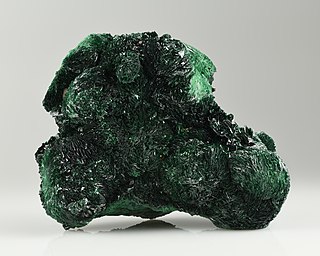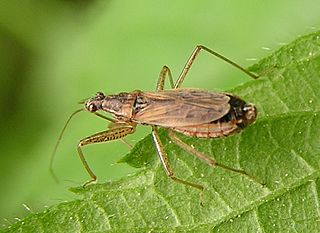| |||||
| Decades: | |||||
|---|---|---|---|---|---|
| See also: | Other events in 1802 · Timeline of Chilean history | ||||
The following lists of events that happened during 1802 in Chile .
| |||||
| Decades: | |||||
|---|---|---|---|---|---|
| See also: | Other events in 1802 · Timeline of Chilean history | ||||
The following lists of events that happened during 1802 in Chile .
1802 - Bernardo O'Higgins returns to Chile and becomes a gentleman farmer.
1802: José Anacleto Montt Goyenechea, lawyer

Chile, officially the Republic of Chile, is a country in western South America. It is the southernmost country in the world and the closest to Antarctica, stretching along a narrow strip of land between the Andes Mountains and the Pacific Ocean. Chile had a population of 17.5 million as of the latest census in 2017 and has a territorial area of 756,102 square kilometers (291,933 sq mi), sharing borders with Peru to the north, Bolivia to the northeast, Argentina to the east, and the Drake Passage to the south. The country also controls several Pacific islands, including Juan Fernández, Isla Salas y Gómez, Desventuradas, and Easter Island, and claims about 1,250,000 square kilometers (480,000 sq mi) of Antarctica as the Chilean Antarctic Territory. The capital and largest city of Chile is Santiago, and the national language is Spanish.

Andrés de Jesús María y José Bello López was a Venezuelan humanist, diplomat, poet, legislator, philosopher, educator and philologist, whose political and literary works constitute an important part of Spanish American culture. Bello is featured on the old 2,000 Venezuelan bolívar and the 20,000 Chilean peso notes.

Ignacy Domeyko or Domejko, pseudonym: Żegota was a Polish geologist, mineralogist, educator, and founder of the University of Santiago, in Chile. Domeyko spent most of his life, and died, in his adopted country, Chile.

Atacamite is a copper halide mineral: a copper(II) chloride hydroxide with formula Cu2Cl(OH)3. It was first described for deposits in the Atacama Desert of Chile in 1802 by Dmitri de Gallitzin. The Atacama Desert is also the namesake of the mineral.

The insect family Nabidae contains the damsel bugs. There are over 500 species in 20 genera. They are soft-bodied, elongate, winged terrestrial predators. Many damsel bugs catch and hold prey with their forelegs, similar to mantids. They are considered helpful species in agriculture because of their predation on many types of crop pests.

The royal governor of Chile ruled over the Spanish colonial administrative district called the Captaincy General of Chile, and as a result the royal governor also held the title of a captain general. There were 66 such governors or captains during the Spanish conquest and the later periods of Spanish-centered colonialism. Since the first Spanish–Mapuche parliaments in the 17th century it became an almost mandatory tradition for each governor to arrange a parliament with the Mapuches.

Francisco Antonio García Carrasco Díaz was a Spanish soldier and Royal Governor of Chile. His political relations with Juan Martinez de Rozas and a smuggling scandal involving the frigate Scorpion destroyed what little authority he had, and required that he surrender his post to Mateo de Toro Zambrano President of the first government board. He was the last governor to rule before the Chilean independence movement swept the country.

The Montt family of Chile, descended from Catalan immigrants to the country, includes a number of people who achieved political office and prominence in other fields:

Hipólito Ruiz López, or Hipólito Ruiz, was a Spanish botanist known for researching the floras of Peru and Chile during an expedition under Carlos III from 1777 to 1788. During the reign of Carlos III, three major botanical expeditions were sent to the New World; Ruiz and José Antonio Pavón Jiménez were the botanists for the first of these expeditions, to Peru and Chile.

David Austin Starkweather was an American lawyer and politician who was a U.S. Representative from Ohio and a U.S. diplomat. He served two non-consecutive terms in the U.S. House of Representatives in the mid-19th century and was United States Ambassador to Chile during the presidency of Franklin Pierce.
Caroline was a schooner constructed in New Bedford, Massachusetts. She disappeared without trace in 1802.

Joaquín del Pino Sánchez de Rojas Romero y Negrete, was a Spanish military engineer and politician, who held various positions in the South American colonial administration.

The 1802–03 United States Senate elections were held on various dates in various states. As these U.S. Senate elections were prior to the ratification of the Seventeenth Amendment in 1913, senators were chosen by state legislatures. Senators were elected over a wide range of time throughout 1802 and 1803, and a seat may have been filled months late or remained vacant due to legislative deadlock. In these elections, terms were up for the senators in Class 1.

Matlockite is a rare lead halide mineral, named after the town of Matlock in Derbyshire, England, where it was first discovered in a nearby mine. Matlockite gives its name to the matlockite group which consists of rare minerals of a similar structure.
José Anacleto Montt Goyenechea (1802–1867) was a Chilean politician and lawyer. He was born in Valparaiso in 1802 and died in Santiago in 1867. He was the son of Filiberto Montt Prado and María de la Luz Goyenechea de la Sierra and the brother of Rosario Montt Goyenechea, former First Lady of Chile. He married Mercedes Pérez Vergara with whom he had seven children.
The following lists events that happened during 1867 in Chile.
The following lists events that happened during 1871 in Chile.
The following lists events that happened during 1885 in Chile.
Harrington was a British vessel launched at Calcutta in 1796 for the Bengal Pilot Service. A French privateer captured her on 9 November 1797 at Balasore Roads. She returned to British ownership and Calcutta registry c. 1800. She undertook sealing expeditions, captured two Spanish vessels off South America, and was seized by convicts in Port Jackson, before being wrecked in March 1809.